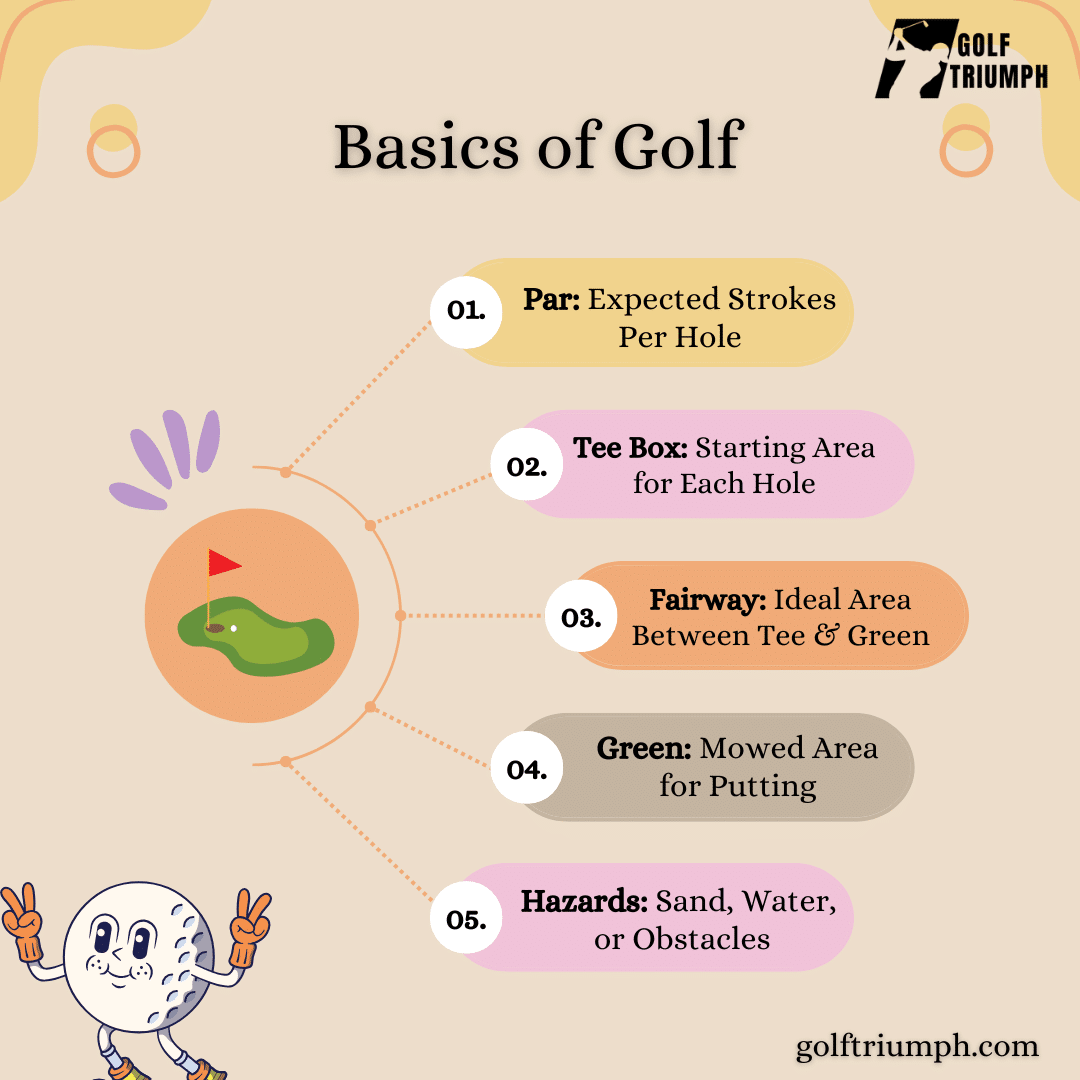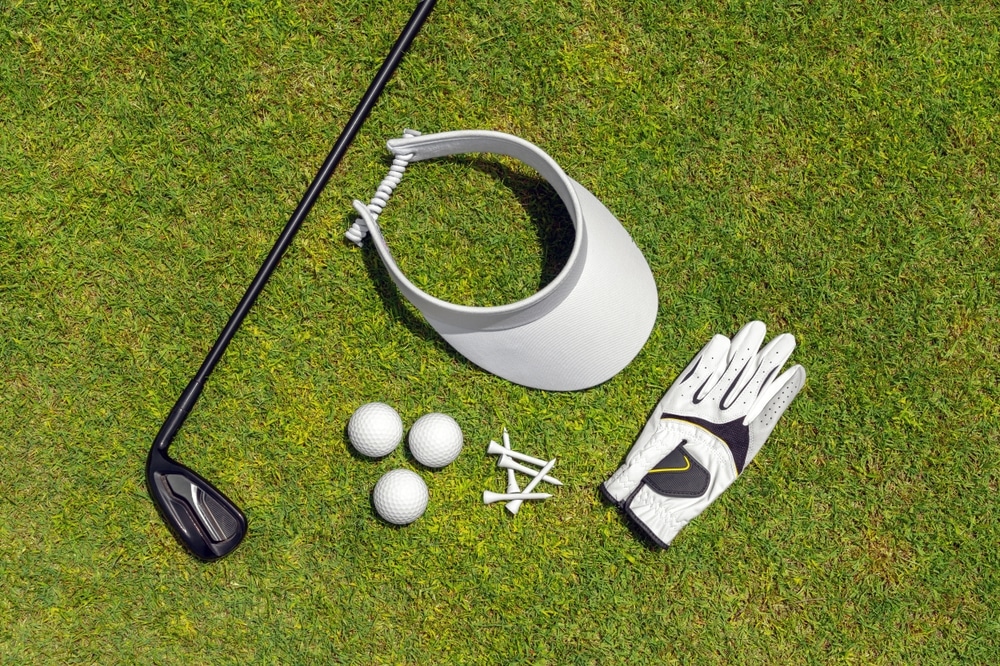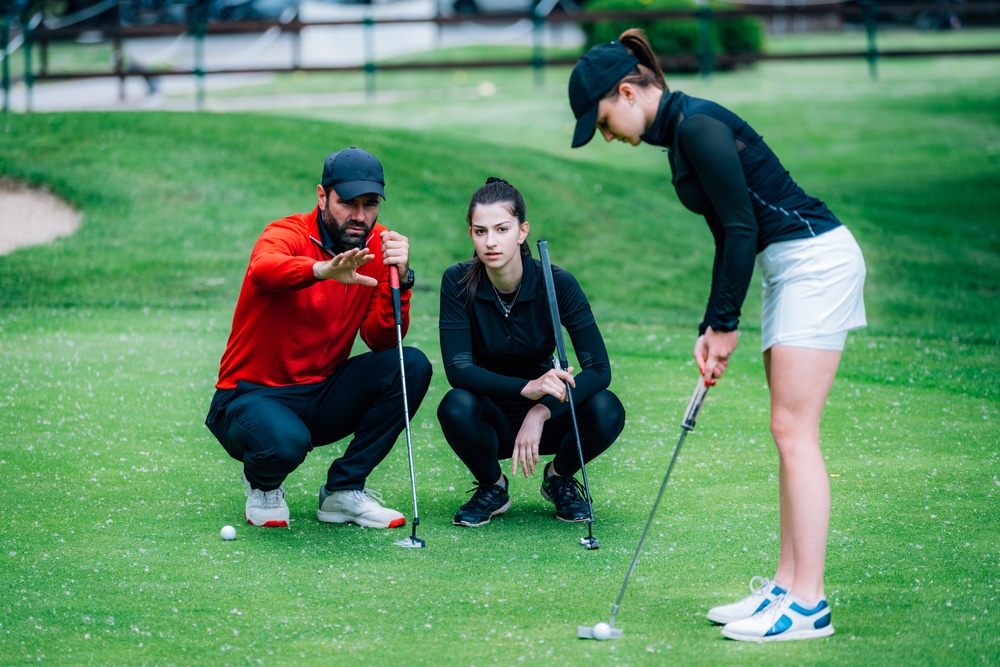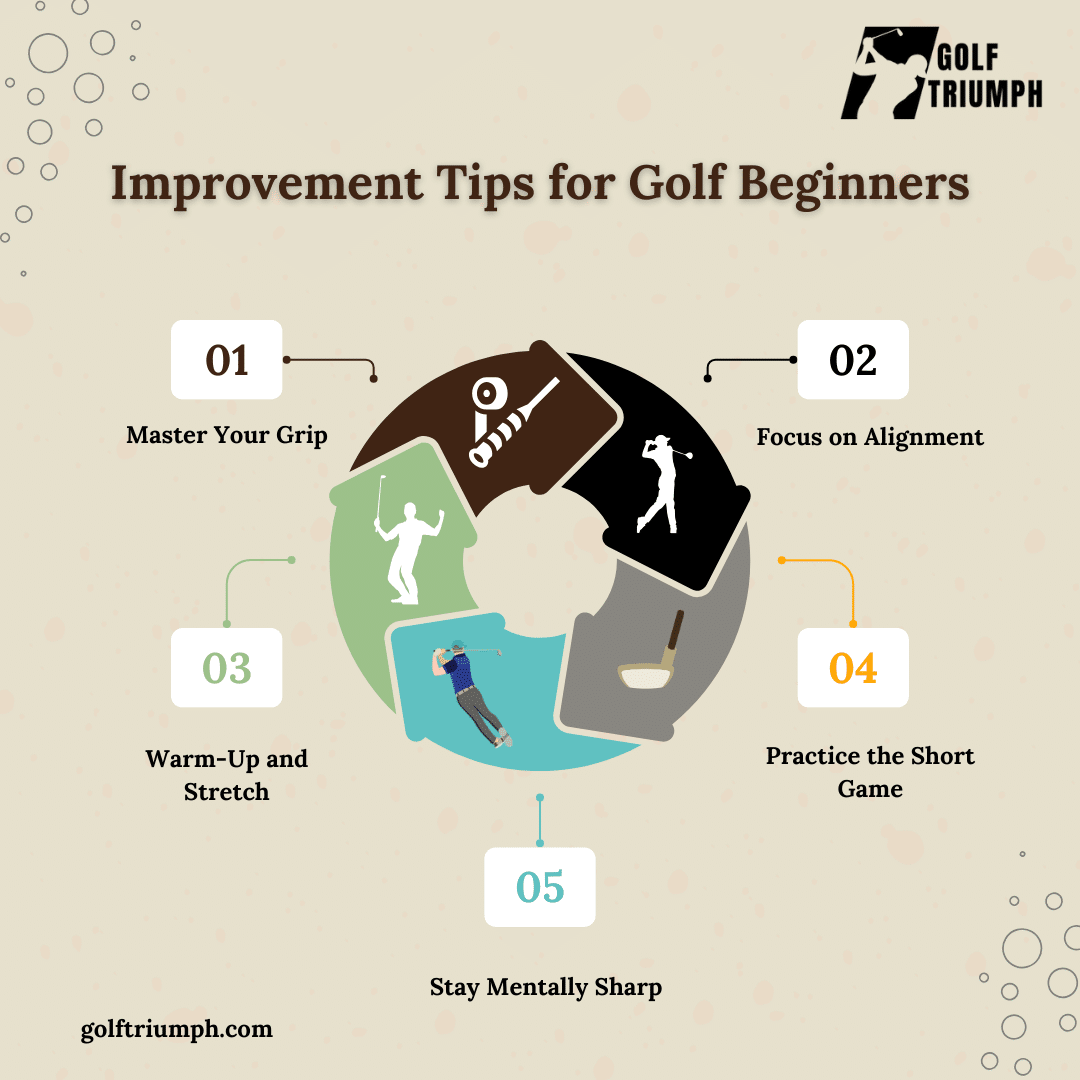
In the world of sports, golf is deemed the most venerable sport due to the precision and strategy involved in mastering it. My outdoor lovers who love trying out calculated movements also deeply admire this strategic brilliance. But what if someone is new to this game and the golf course is an intimidating spot for him? Don’t worry we have got you covered. From finding the ideal golf clubs to getting the right equipment and mastering this game, each step is paramount. So, in this article guide, we have crafted some essential tips for playing golf for beginners. Get ready to master this game with precision and practice.
Learn the Fundamentals of Golf

While working on golf tips for beginners, I suddenly realized that a novice must be familiarized with the basics first. It will help you learn better and faster.
Learn the fundamental rules of golf before you hit the golf course. If you grasp these fundamentals, your introduction to the game will go more smoothly and enjoyably. After all, it’s all about seeking fun in every activity.
- Par: This represents the golf shots that a competent player would require to finish a hole. A skilled player should, for instance, try to finish a par-4 hole in four strokes.
- Tee Box: The spot where every hole’s opening shot is made. There are two marks on it that show the boundaries.
- Fairway: The spotlessly maintained strip of open space that runs from the tee box to the green. It’s the perfect spot to place your golf ball in preparation for more shots.
- Green: The grass that has been closely mowed around the hole to facilitate shooting.
- Hazards: These are challenging features that include sand bunkers, water features, and uneven terrain.
Folks, to get the best golf set for beginners; first, there is a need to master basic phrases and guidelines as well, such as maintaining scores, taking turns, and knowing when a penalty is called. Being aware of this will enable you to play professionally and with confidence.
Right Tools and Equipment

Have you learned the basic phrases? The next step in mastering the game is looking for the right tools. Purchasing the right set of golf clubs for beginners is essential for a successful beginning. Although you don’t have to purchase a whole set of clubs at first, you should think about the following essentials:
- Driver: When hitting long shots off the tee time, this club is used. Drivers’ long shafts and low lofts make them difficult for beginners to use, but with practice, you can get better at long games. However, to master this, you have to get the best golf driver for beginners.
- Fairway Woods: These clubs are adjustable for a range of circumstances and are helpful for long shots from the fairway.
- Irons: Clubs with the numbers 5, 7, and 9 are suitable for novices since they are adaptable and forgiving. They are employed for various strokes, such as approach marks on the green and shots down the fairway.
- Putter: A must have while taking shots on the green. Try a few putters to locate one that feels comfortable as they come in a variety of sizes and shapes.
- Golf Balls: Since beginners frequently lose a lot of balls, start with affordable balls. You can experiment with different kinds of balls as you get better and find which ones work best for your style of play.
- Tees: These tiny pegs hold every hole opening shot off the ground.
Additionally, you can also consider purchasing a golf glove to help with grip, a strong golf bag to hold your 14 clubs and accessories, and comfortable, well-gripped shoes. We can say that having the best golf club set for beginners is essential to be a pro at this game.
Take Lessons

Okay, now it is time for some practical sessions. You can take lessons from a professional or you can also try it on your own.
Even while you can play golf on your own, working with a professional instructor to take golf lessons will greatly speed up your progress. Here’s why taking lessons is helpful:
- Personalized Tips: A pro fine-tunes your grip, stance, and swing.
You have the option of group lessons, which can be less expensive and provide you the chance to meet other beginners, or individual sessions, which provide one-on-one teaching. Additionally, a lot of courses provide structured beginner clinics covering the fundamentals.
Conduct Regular Practice
To get better at golf, you must practice frequently, just like you would in other sports. Here are a few strategies for productive practice:
- Driving Range: Perfect for refining long shots without the pressure of a full round.
- Putting Green: Master your short game to lower those scores.
- Chipping Area: Nail those tricky shots near the green for a better approach.
Apart from these services, a lot of golf courses include practice bunkers where you can practice breaking from the sand, which is an important ability to have.
Etiquettes
Golf is a tradition- and manners-driven game. It’s essential to comprehend and abide by these unwritten guidelines to make sure the course is enjoyable for both you and the other participants. These are some key points:
- Respect Others: Stay still and quiet when others are taking shots.
- Care for the Course: Fix divots, rake bunkers, and keep it clean.
- Repair Ball Marks: Fix any marks on the green.
- Be Ready to Play: Keep the game moving—be prepared.
Take a Par-3 Course to Begin

Par-3 courses are ideal for novices because they are shorter and less demanding than regular courses. The majority of the holes on these courses are par 3, which makes them shorter and simpler to play. Starting on a par-3 course relieves the strain of long holes and challenging hazards so you can focus on your swing and short game.
Join Beginner-Friendly Group
Golf is a social sport, and being involved in a club or organization can inspire and support you. Numerous golf clubs cater to novices by offering social events or starter leagues. These gatherings offer chances to meet and play with other novices while also offering a welcoming and encouraging environment for you to learn the game.
Remain Calm and Positive
Golf is a difficult game that calls for both perseverance and an optimistic outlook.
Here are some suggestions to keep you inspired:
- Set Goals: Aim for small targets, like hitting more fairways or reducing putts.
- Celebrate Wins: Recognize every improvement, no matter how small.
- Stay Positive: Golf’s tough at first, but keep it fun, and don’t stress the scores.
Observe
Observing professional golf events can provide valuable knowledge on tactics and approaches. Observe how professionals respond to certain scenarios and attempt to apply their strategies to your own play. Additionally, you can enhance particular areas of your game with the help of the numerous tutorials and instructional videos that are available online.
Monitor Your Progress
Maintain a score log to monitor your progress over time. Use scorecards or applications to keep track of your progress and make plans for the following round. As your game progresses, keeping track of your progress can help you stay motivated and pinpoint areas for development.
If you want to get information about a realistic timeline for improving golf, check out Zach’s article.
Improvement Tips for Beginners

We have covered some detailed suggestions to help you improve yourself even more.
Swinging Like a Pro
Master your swing for consistent performance.
- Grip: Find the perfect hold (try different grips!).
- Stance: Stay balanced with knees bent and weight on your feet.
- Backswing: Keep arms straight; go slow and steady.
By working on these parts at the driving range, you can create a steady, dependable swing.
Fast Game Skills
Focus on perfecting the little shots around the green.
- Putting: Practice short putts and focus on accuracy.
- Chipping: Use a wedge and keep a smooth stroke.
- Pitching: Adjust the swing for distance and use a pitching wedge.
Course Management
Smart strategy can take your game to the next level.
- Play to Strengths: Aim for shots that set you up for short irons.
- Avoid Risks: Play smart and avoid unnecessary challenges.
- Know Distances: Use GPS or rangefinder for accurate shots.
Mental Activity
Stay focused and calm for better shot-making.
- Stay Focused: Forget past mistakes; focus on each shot.
- Visualize: Picture your ball’s path before hitting.
- Pre-shot Routine: Create rituals for consistency and calm.
Physical Fitness
Boost your game by getting your body in shape.
- Flexibility: Stretch for a smooth swing.
- Strength: Strong legs and core = better stability.
- Endurance: Build stamina with cardio for 18 holes.
Playing golf can offer a lifetime of fun and is a rewarding activity. You can begin playing golf with confidence by studying the fundamentals, purchasing the appropriate gear, getting regular practice, and learning some etiquette. On the course, don’t forget to be patient, optimistic, and enjoy yourself. Enjoy your time while playing golf!
Conclusion
Summing up, the article covered a detailed guide on playing golf. This guide has covered every nuance and intricacy to make it beginner-friendly. This guide is a savior for those who are learning to play this game and don’t know where to start. So, dear golf enthusiasts, just get your hands on the best golf ball for beginners and get started with your practice today.
Tee Time!





